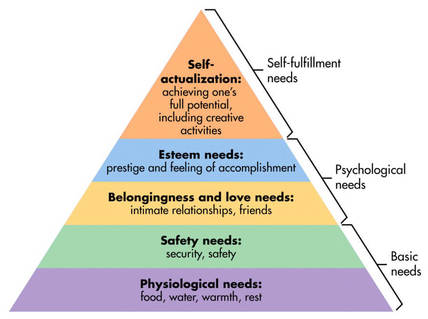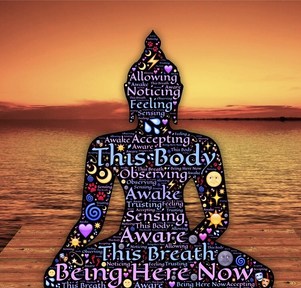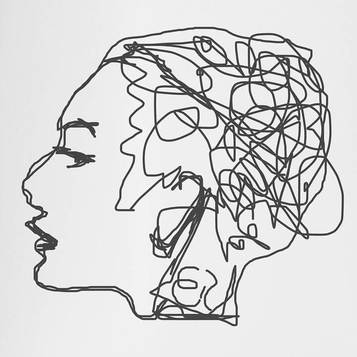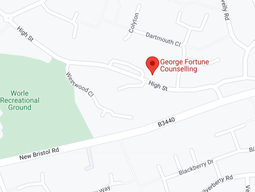|
Being happy is a very interesting topic which affects us all in some form or another, and while happiness is extremely difficult to measure, in my professional and personal experience, happiness often comes from a place of self-acceptance. In this article, I am going to explain why I think that self-acceptance might be the key to happiness and how you can learn to become more self-accepting, which in turn I believe will have a positive effect on your overall happiness. What is happiness?Firstly, I think it is may be really useful to provide a definition of what happiness means so that we have a basic understanding to work from. However, the very subjective nature of happiness, and it being a felt experience, means that finding a definitive statement for being happy is not really possible. However, what this does offers is a great opportunity to reflect on the following questions: “What does being happy mean to me?” “How do I know when I am happy?” “What does it feel like to be happy?” “What is different about me when I am happy?” By exploring these questions you may find a statement that provides you with an understanding of what happiness is to you. For me, through what I have read, studied and personally experienced, I believe that I can break what happiness means to me down into the following sentence: "Happiness is a felt sense; it is the experiencing of positive emotions such as contentment, pride, joy, love and compassion in the here and now, but also, an awareness of satisfaction in my life, an appreciation of myself, and an acceptance of the goals I wish to achieve coupled with understanding that there could be pitfalls in my progression towards them." Humanism and HappinessBefore I can answer why I think self-acceptance plays a pinnacle role in a person's happiness, I first have to give you a background of my counselling practice as I feel it will bring to light my reasons for seeing self-acceptance as important to being happy and also, where you may be able to find more resources should you wish to explore this topic further. Coming into the counselling profession from a Humanistic background where theoretical approaches such as Person-Centred, Gestalt and Existential Therapy hold their roots; a great deal of my teaching has been around human development and growth. One key aspect of this modality is the acknowledgement of humans innate desire to progress in life and to reach a level of fulfillment and purpose. The term that best describes this is reaching a state of self-actualisation, a term most recognised by the work of Abraham Maslow's and his Hierarchy of Needs. I feel it is important to mention the hierarchy, as it indicates a way of understanding where one is in their development process and what might be needed to help you on your journey. The following is a brief breakdown of the Hierarchy:
Self-actualisation should not be considered as having been achieved only once to then always feel fulfilled, but rather, as a stage that is ever moving as you progress through life and new situations arise; for example, I may been feeling content all day until I get home, see the post and have received a bill which I can’t afford! Furthermore, although the Hierarchy shows the progressional stages to reaching self-actualisation, it should be noted that you can go up and down the Hierarchy of needs if they are no longer being met, and you can also be working on multiple stages at once, for example, whilst getting a promotion in your job you may both gain more financial security (safety needs) and feeling more connected to the company (belonging needs). At which stage is happiness important to development?When you look at the Hierarchy of Needs in relation to happiness a clear stage may start becoming apparent. Psychological needs is where I believe we are most likely to become aware of our lack of happiness, the impact on our progression and/or the feeling of stuckness. To me, this is because we are now at a stage where our basic needs are being met (where being happy isn’t the aim at this stage), but other forms of discomfort may be appearing due to new situations arising such as seeking close relationships, job opportunities and learning new skills. In my work as a counsellor, I often hear people say things that would indicate a feeling of unhappiness and not getting their belonging and esteem needs met. Below I have put a short list of quotes that clients have said and, after further exploration, we were able gain an understanding of what they actually meant to them:
Each one of these quotes can be seen as someone who is not getting their esteem and belonging needs met and therefore may struggle to reach a state of self-actualisation and fulfilment. In this stage we are putting added pressure on the development of our self-esteem, as our perception of how we should be living our lives is challenged by an awareness of how we wish to be living it. It could be considered that these quotes, which I'm sure many of us can relate to, could indicate an unconscious insight into our real self and ideal self perspective, that is, who we really are and who we want to be. Self-esteem relates to the way that we feel about ourselves, which is is why I strongly believe that self-acceptance plays an important role for people to develop positive self-esteem, reach a state self-actualisation and feelings related to happiness. Society and our comparative natureSomething we have yet to touch on is the impact our society has on our views and ideals of being happy. As I mentioned in my article 5 tips to managing depression, we live in a society where we are expected to keep moving forward. Yes, this does have its advantages. However, it also encourages the increase in individuals comparing themselves to one another, which in the pursuit of happiness, will ultimately have a negative effect. Although comparing ourselves to others is influenced greatly by societal values, it is also a very individual perception and based on what we feel is ‘good’ or ‘bad’ influenced by factors like our upbringing and learnt experiences, and is very likely to generate feelings of being less than others. Of course, there will be people who you feel you are achieving more than, but by our very nature of pursuing self-actualisation, we will always find room for growth and development, which will be at the expense of your happiness; if it is through comparing yourself to other people whilst dismissing our own achievements. And the truth is, I'm sure we are all culprits of comparing ourselves to others, feeling less than, and expecting more from ourselves. I’m sure if you look back at times when a friend or colleague had achieved something you have compared it to your situation, like a friend getting a new car or colleague getting a promotion. We will do it, but by learning to become more self-accepting the need to compare to other drifts further into the distance. Self-acceptance and being HappyHopefully by now you have got a better picture of where my theoretical background stems from and why I feel Maslow's Hierarchy of Needs plays an important part in understanding development and happiness. I hope what it indicates to you is how, when in the psychological needs stage, we are most likely to be aware of our comparative nature and how it can have an negative impact on our overall happiness. Hopefully, it has now become clear that comparing ourselves to others is going to impact our happiness. However, the bad news is that we are going to do it anyway. Why? because we are very social creatures that want to fit into our environment the best that we can and with the people who live in it. We can’t fully change our psycho-social nature it is part of our evolution. However, we do have an amazing organ at our disposal, our brain, that can be moulded and changed at any age (known as neuroplasticity), which can help to construct a different view of others, the world, and most importantly how we view ourselves. So where does self-acceptance come into the picture?Once we recognise that comparing ourselves to others might be holding us back, we can start considering how we stop doing it, begin to get our own needs met without the need to manipulate our environment, and take the time to truly learn what our own goals in life are, without the influence what we feel is expected of us. Sometimes it can be difficult to really know what it is we want from life, this is when it can be useful to see a counsellor because the very essence of the work is about gaining a picture of the client’s world and broadening their self-awareness, which in turn allows for greater understanding of who they are, leading to them becoming more accepting of themselves. However, not everyone who feels stuck, unhappy, or feels that they are not achieving their full potential needs to see a counsellor. For some, it is about taking control of their own life and allowing themselves to be the most important person to them irrespective of all their faults. Here is a fantastic quote from american psychologist and founder of the person-centred approach Dr Carl Rogers: “The curious paradox is that when I accept myself just as I am, then I can change” To me, what he is referring to is the acknowledgment of who you are and your achievements in life, no matter how small they may seem in comparison to those of others. When you are accepting of yourself you will begin to notice that you can let things that were once concerns go. You will begin to realise you are worth far more than the negativity you are holding on too about yourself in relation to others, but also, challenging the expectation your inner critic has of you and your abilities. So how do I become more self-accepting?It may have felt that this whole article has been leading up to some revolutionary idea of how to be happy through self-acceptance but the truth is that there isn’t one. Happiness is so individual that it would impossible to say that there was one way to be happy. What I hope you have got from from reading this article is that maybe letting go of the need to be pushing forward all the time or comparing yourself to others who you think are doing better than you, and learning to accept yourself just as you are, then maybe you will begin to see yourself and your achievements in a different light. To offer some support as you change into becoming more self-accepting I have written 5 tips on becoming more self accepting: 1. Motivate yourself to changeFirst of all, I believe that one must acknowledge that self-criticising and loathing is not going to help you to accept yourself. You will need to come to the conclusion that life would be far better if and when I accept myself in all aspects of my life, the good, the bad and the ugly! 2. Appreciate your strengthsWrite down what your strengths are and congratulate yourself for them. It is not always easy to do and we seem far better are noticing our flaws. However, starting to write a list will help to acknowledge what you are great at, which will help you to develop a compassionate view of yourself; and at times when you may not be feeling worthwhile, you will have your list for reassurance. 3. Accept some dreams will not be achieved in your lifeWe can get very hung up on lost potential in life. This further distances us from being able to accept ourselves. Take the time to look back at dreams you wanted to achieve, are they still a possibility, or is time to accept that sometimes we don’t get to achieve what we set out do and that's ok, I’m sure there are dreams you did achieve. 4. Be more self-compassionateSelf-compassion is so important in life, it has so much power when you are feeling at your worst. By learning to moderate your inner critic from noticing your flaws, learning to ground yourself and check in with you body through practicing breathing techniques, you will begin to understand your thoughts and emotions better, which will further support your ability to achieve happiness. 5. Realise self-acceptance isn’t at the dismissal of other’sSelf acceptance is not about dismissing everyone else and only looking after yourself. Being compassionate and caring towards other should be something you want to do also, the important things is that it is not at the expense of your happiness. I hope you found this article and the 5 tips on self-acceptance useful to your development. Further reading around the subject will be needed, however, I wanted to offer you a brief understanding of my perspective on happiness and what can be done to be more self-accepting. I hope you enjoyed reading my thoughts on this subject. Please leave any comment about your thoughts, feelings and experiences on the subject as it may provide further support to others. (Image sourced from pixabay.com) References & Bibliography
Other useful resources:- 5 Useful tips on managing depression.
|
AuthorGeorge Fortune BSc (Hons) Archives
May 2018
Categories |
Counselling in Weston Super Mare and North Somerset. George Fortune Counselling
Location
|
George Fortune Counselling07462 110 948 |
Mission Statement
George Fortune Counselling is the trading name of StressLess Solutions Ltd
|































